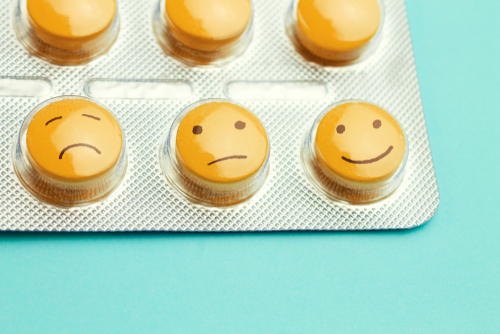Read the latest and greatest from our team
of incredible specialists.

Beach House Recovery Center » Blog » How Do Antidepressants Make You Feel?
Have you ever wondered how antidepressants make you feel? If you have, you are not the only one. There is no clear answer to how antidepressants will make an individual feel. Influential factors may include the type of antidepressant prescribed, the dosage, and the unique biological traits of the individual that is taking the drug.
Our Florida drug rehab experts have put together this guide to discuss what antidepressants are, how they are intended to make you feel, and which types are the most popular antidepressants used today.

Antidepressants are prescription medications that are used to treat patients suffering from depression, anxiety, panic disorders, seasonal affective disorder, dysthymia, and other mental disorders. Though there are a number of different types of antidepressants, all drugs that fall into this category are designed to correct chemical imbalances of various neurotransmitters that are linked to mood and behavior.
Think of neurotransmitters in the brain as communication links between nerve cells. Nerve cells will release neurotransmitters, which can then be absorbed into other nerves or reabsorbed from where they came from. This process is referred to as “reuptake”, which is a common word you will frequently come across when researching antidepressants.
The three neurotransmitters that are believed to be linked to mood and behavior are serotonin, norepinephrine, and dopamine. Most antidepressants help to improve an individual’s mood by alleviating the symptoms of depression and other related mental disorders. By preventing reuptake, there will be a larger amount of neurotransmitters in the brain.
In general, antidepressants are intended to improve mood and alleviate or control the symptoms of depression. Common symptoms of depression may include sadness, hopelessness, lethargy, and apathy. While taking antidepressants should help an individual feel happier, it is important to note that everyone is unique and will, therefore, react differently. Factors that may influence how an individual reacts to the drug can include the dosage, their overall health, genetics, or the specific mental illness being dealt with.
There are a number of different antidepressants available, all of which work in slightly different ways and come with their own set of side effects. It’s important to work with a licensed medical professional to find an antidepressant that successfully improves mood and alleviates symptoms with minimal side effects.
When prescribed an antidepressant, it will usually take 2 to 4 weeks for it to begin to take effect. The drug will usually reach its fullest potential at around 12 weeks. While side effects are normal, it is still highly advised to discuss your symptoms with your health care professional in case they need to make adjustments to your treatment plan. In some individuals under the age of 25, antidepressants may cause an increase in suicidal thoughts or behavior, especially during the first few weeks. In these cases, the dosage needs to be adjusted right away.
Each type of antidepressant will make an individual feel differently. Below are a handful of the most common types of antidepressants and how they affect the body.
Whether you suffer from severe depression, anxiety, post-traumatic stress disorder, or any other type of mental illness, please know that treatment is always available. Do not try to self medicate with other drugs. Seek guidance from a professional medical team that can advise you on a strategic treatment plan.
It’s important to note that while antidepressants are very effective, they can also become addictive in some cases. If you have developed an addiction to antidepressants, the time to get help is now. At our drug detox center, our professional staff will help you get off antidepressants and advise you on a different path for treatment. Your mental health is our number one priority. For more information about antidepressants, contact our inpatient drug rehab facility today and speak to one of our treatment specialists.
Sources:
Whether you’re researching for yourself or a loved one, Beach House can help. We understand that this is a serious time in your life and that the treatment center you choose matters. We want you to feel comfortable and empowered to make the right decision for yourself, a friend, or a family member. This is why a counselor is waiting and available to answer your questions and help put your mind at ease regarding the next steps. Many of the staff at Beach House have walked in your shoes. If you feel you’re ready or want more information about how to help a loved one, we can help today. You can also learn why we are voted the #1 rehab for addiction treatment in Florida.
We accept most major insurance plans and can verify your benefits quickly and confidentially.
We’re committed to helping you access the care you need, our admissions counselors can guide you through your coverage options and available resources.





"*" indicates required fields